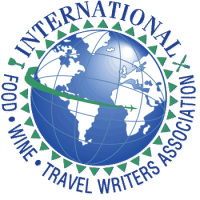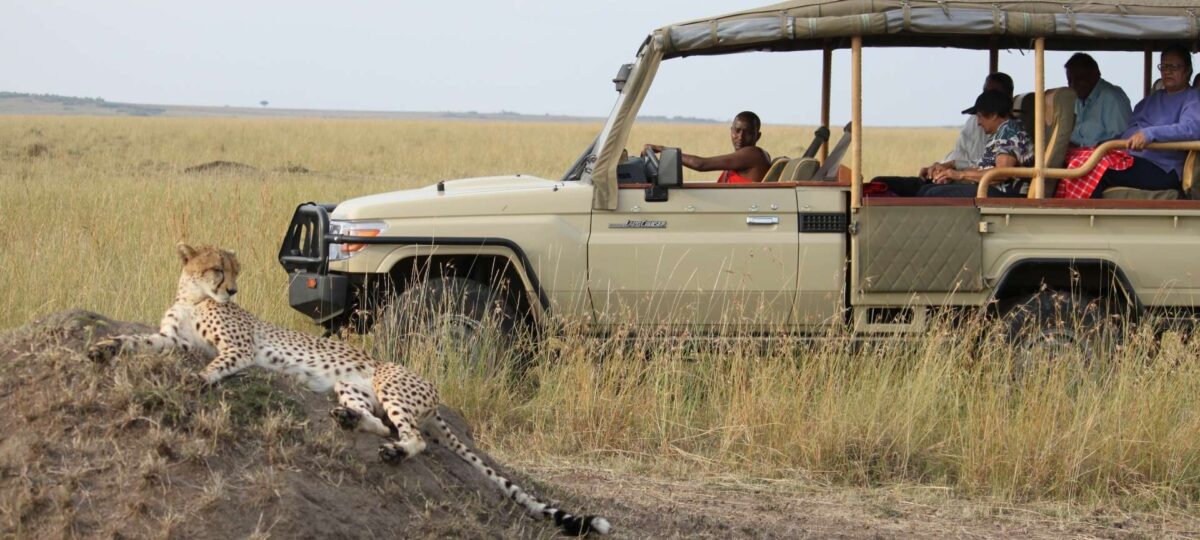
Photo Credit – Giancarlo Bisone
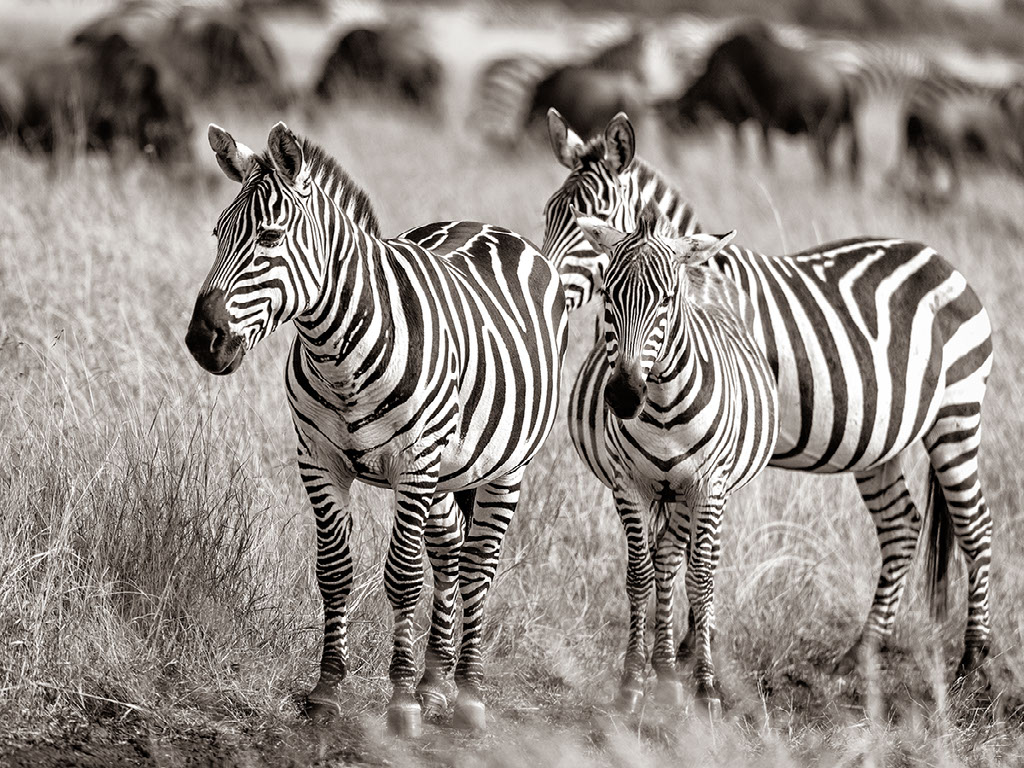
Photo Credit – Giancarlo Bisone
How to Plan an African Safari and Select a Safari Outfitter In Kenya
Planning an African Safari. An African safari is a trip of a lifetime and one of the biggest travel adventures you will ever encounter. Coordinating with a safari specialist who is an expert in creating a personalized itinerary that suits your destination needs and your pocketbook is essential.
Firstly, deciding where we wanted to go, our budget, and finally, choosing the right safari operator were key factors in determining our customized Safari travel adventure. So we decided and finalized our destination in Africa before jumping into all the other planning details, such as how many days and what type of safari camps we wanted to experience.
Determining a Safari Destination: As with the organizing for most of our trips, I do the research and the planning, and then once I have detailed information, my husband and I review it. The planning process was a little overwhelming initially, with so much information available. I was all over the internet, on Facebook, and Instagram, seeing where and what others have done. Then I reached out to friends and colleagues who have gone out on similar African Safari outings. Where did they go, what time of year did they go, and what did they like the most about their adventures? After a few weeks of due diligence, my search for where we wanted to go was shaping up, and we had a much better feel for what we wanted to accomplish with our safari adventures.

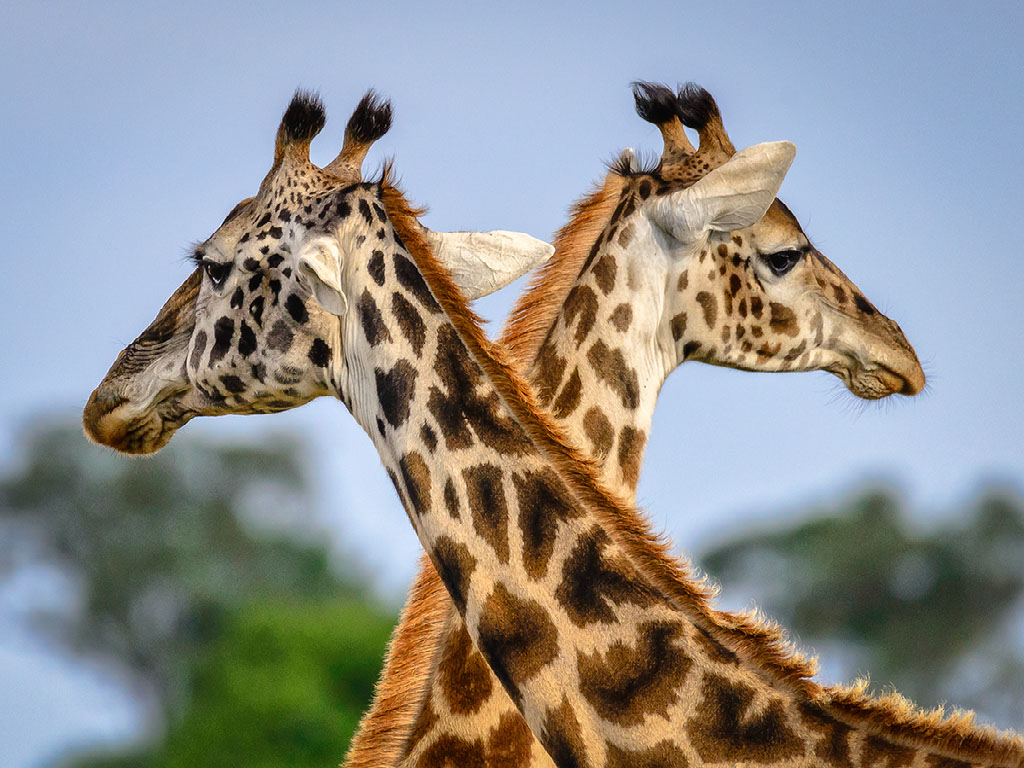
Photo Credit – Giancarlo Bisone
With so many African destinations, how did we finally narrow it down and choose one? These are the questions we asked. What are the different destinations in Africa for Safari? What kind of wildlife did we want to see? What time of year did we want to travel?
Safari Destinations: Africa is a continent with 54 countries, of which nine are designated as wildlife safari destinations.
- Kenya
- Tanzania
- South Africa
- Namibia
- Botswana
- Zimbabwe
- Zambia
- Uganda
- Rwanda
 South Africa, Namibia, and Kenya are considered the least expensive African safari countries.
South Africa, Namibia, and Kenya are considered the least expensive African safari countries.
Kenya: We ultimately chose Kenya because of the diversity it offers and its access to Nairobi, where we planned on flying. Once we had selected Nairobi, it helped us narrow our selection of a safari outfitter. Kenya is one of the premier tourist destinations in Africa, famous for its stunning landscapes, magnificent wildlife, and pleasant climate. Many hundreds of thousands of travelers visit Kenya each year mainly to take a wildlife Safari, enjoy the beautiful Indian ocean beach or take an activity tour such as climbing Mount Kenya.
The two major rainfall seasons typical to Kenya also loosely apply to Masai Mara, with the months from April to May and September to November seeing brief rainy spells nonetheless accompanied by hours of sunshine. The terrain in the reserve is typically open grassland and rolling hills punctuated by a non-seasonal Mara River ( scene of the migration crossings). Though Wildebeest are the most numerous of the many mammals found in Masai Mara, there are healthy numbers of a richly diverse wildlife ecosystem, and it is possible to see in a single game drive, not just the Big Five ( Lion, Leopard, Elephant, Buffalo, and Rhino ) but much more to include the Big Nine such as Cheetah as well. There are also over 450 species of Birds recorded in the Masai Mara Ecosystem.
When Should you start planning – I recommend at least a year in advance to give you time to research and choose the location where you want to travel. There is certainly no right or wrong time to plan, but planning a year in advance is recommended if you are looking at traveling in the high/busy season, as we have discovered. However, if you have flexibility in your travel, booking a safari 6-9 months prior to when you want to go is more the norm and look at the shoulder months rather than the peak seasons.

Per the many recommendations we received, our personal search also began a year in advance of when we planned to travel because we didn’t know the exact months we would travel. And more importantly, which months could we take advantage of using our frequent flier miles to get there? It is quite a jaunt entailing many hours and several legs of travel to get there. We just knew we didn’t want to try to make the whole journey in one fell swoop. For us, breaking the jet lag factor up a little along the way is essential, which is why we planned a 2-day stopover in London.
Choosing a Safari Outfitter: It can be time-consuming when researching where to go and what Safari outfitter to choose. As soon as you determine you want to create your dream safari in Africa, start first by searching the internet. All the information coming your way can be overwhelming, particularly on Facebook. Once we started our search, every day, there were several new Safari Companies that would show up on our Facebook accounts. The search was getting even more confusing as they all offered exciting itineraries. We still had to choose one so that we could get the planning in gear.
Kenya Safari: What factors did I consider when choosing our Safari Expert and our destination of Kenya?
- What destinations and amenities do the Safari companies offer? There were certain things we knew we were looking for. The itineraries mainly included all-inclusive packages, where your transportation, accommodations, guided tours, game drives, sun-downers, meals, and most beverages for the Safari. Extras like balloon rides, spa treatments, premium beverages, and tips are not included.
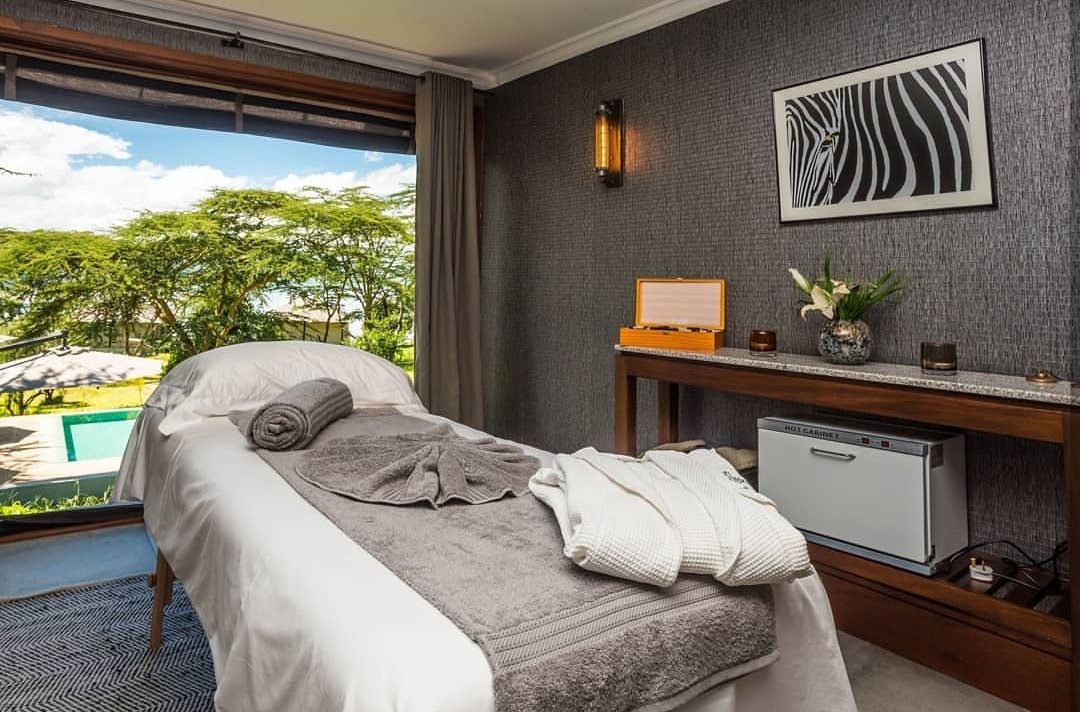
Spa Treatments at The Cliff at Lake Nakuru
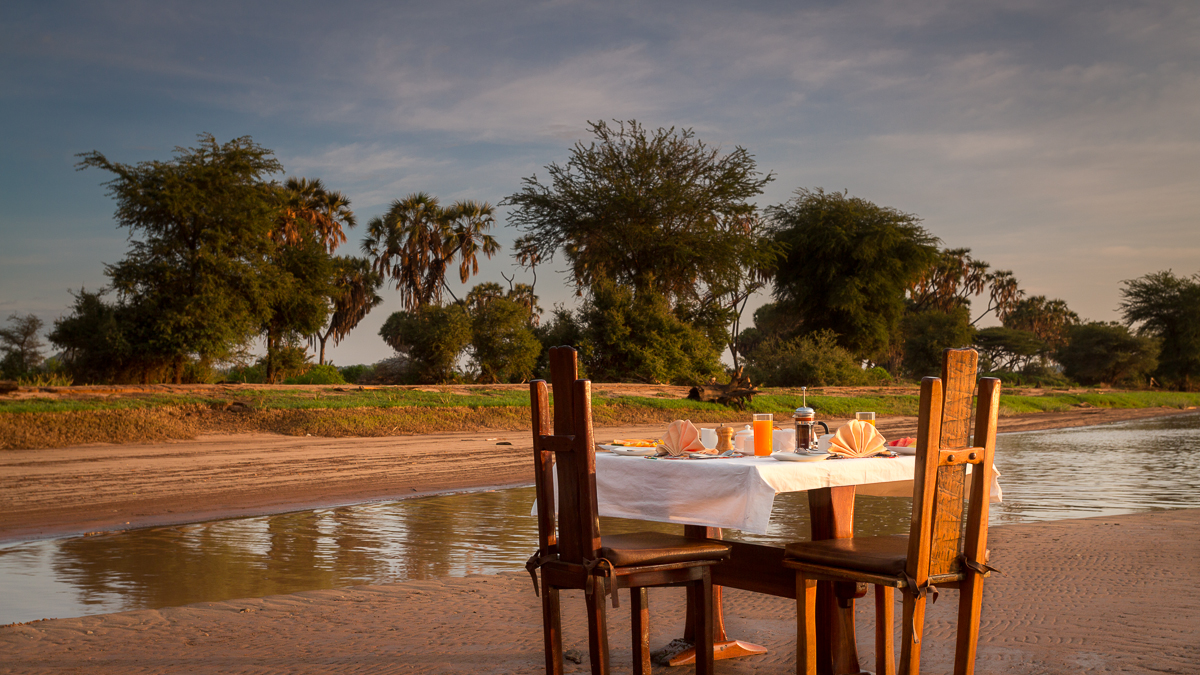
Breakfast by the river at Elephant Bedroom Camp
- We had selected flying into Nairobi from London based on how best to use our Frequent Flier Points as it was the most accessible for us to reach. We planned on flying into London to break up the trip as it was better for us from California, and that way, we could spend a few days there with friends. We found a great flight from London on KLM through Amsterdam into Nairobi.
- Award Logic – Booking a flight with points: If you plan to use your points for your travel, do it as far in advance as possible. We have learned from experience over the years of booking award travel. I discovered a great online app that does the legwork for you on what flights are available and what points you can use for them. Award Logic is one of the most comprehensive search programs I have found. It offers live inventory for award redemption to use your miles and points to book flights. It is a subscription-based program. However, you can try it for free for three days, then it is $19.99 per month, and you can cancel anytime. Thanks to our searches with the Award Logic program, we were able to find excellent real-time availabilities and were able to find a variety of flights that worked for us with our dates. Check them out here: Award Logic
- As you get closer to your desired departure date, you will find much less flight inventory available using your points, particularly if you are looking for business-class seats. Be sure to have your flights secured before booking and locking in your Safari dates. It was easier for us to find and book flights for a travel day to arrive in Nairobi and then plan the Safari around that. Once the arrival dates were in place, we selected the dates we wanted to begin the Safari.
- Ultimately, based on our arrival day in Nairobi with the flights we found, the planning process commenced for determining the specifics of our Kenya Safari expedition. With our outbound flight into Nairobi locked in, our Safari expert from Safari Herd started working through our options.
- Next Steps: Things to determine. How many nights do you want to be at the safari camps, and how many of them do you want to visit? How much time do you want to spend in Nairobi or other major cities you will be arriving at before taking off on our safari adventure? If you want to extend your trip, where do you want to go the week before or after your safari?
- Questions to ask your potential safari expert.
- What’s included?
- How accessible are the parks?
- Will you be sharing your safari experience with strangers?
- How knowledgeable are the safari guides?
- How well equipped is the safari vehicle, and will the guides have protection?
- What sort of preparations do you need before traveling to Africa?
- What can you expect as a typical day on safari?
- What are my extra daily costs?
- Budget – It’s really dreamy to think of going with super high-end luxury safari companies like Abercrombie and Kent or staying at one of Richard Branson’s exclusive safari lodges. A bit lofty on the budget for us, though we still didn’t have to skimp with a lower-end budget safari either. We had time to research and customize what worked best for us, where we wanted to go, and how much we could spend. We were able to find fantastic safari camps which offered affordable rustic luxury in the national reserves.
- How much do safaris cost? An average Safari costs approximately $4000 per person and can go well over $20,000 per person and up. An African safari costs anywhere between $125 and $1,500 per person per day. A budget safari averages $150 per day, a mid-range $350 per day, and a luxury safari starts at around $750 per person. Keep in mind there are also incidentals – private excursions, premium drinks, tips, etc.
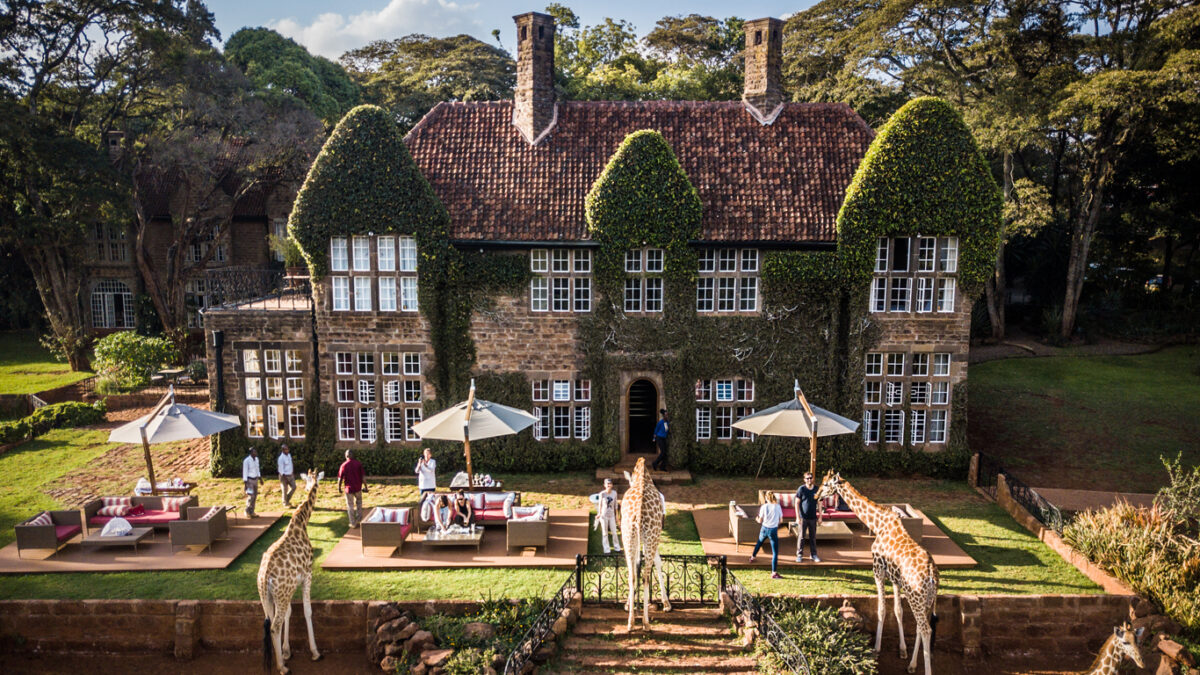
The Elegant Giraffe Manor In Nairobi, Kenya
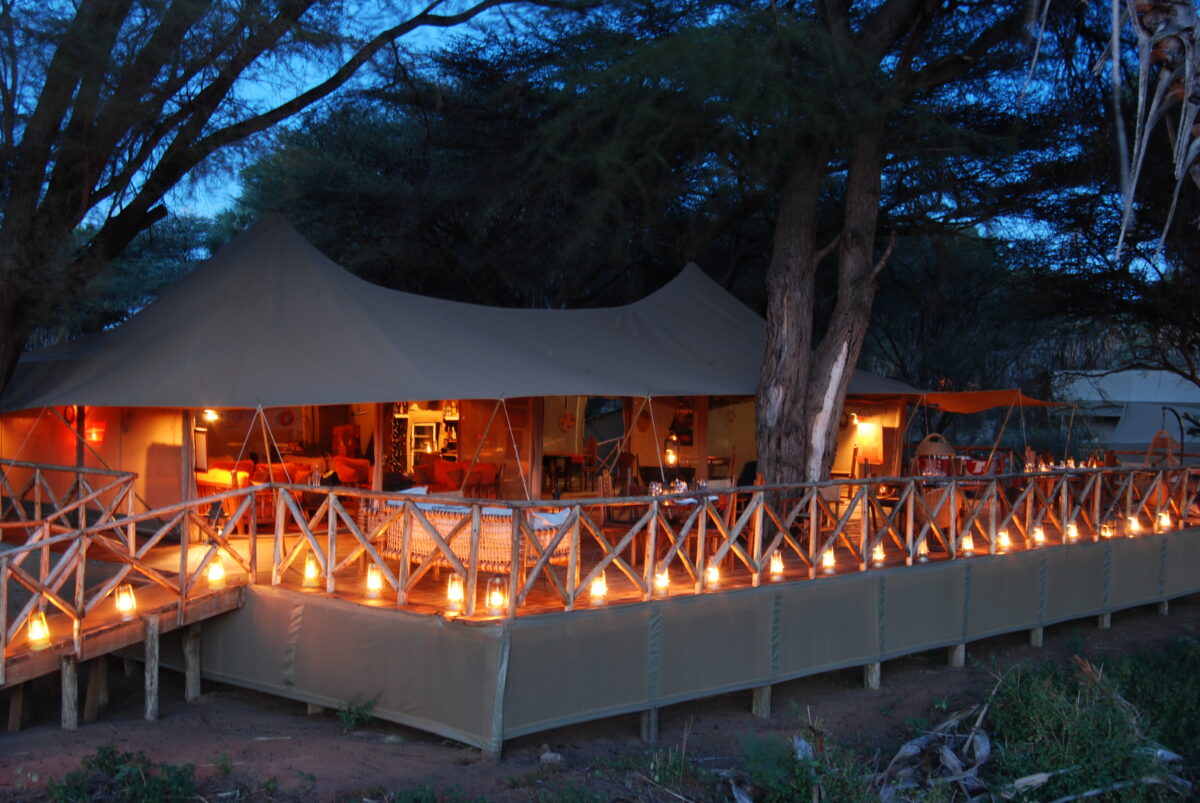
The Dining Pavillion and Lounge at Elephant Bedroom Camp
- Accommodation Options There are many different types of safari accommodations, from Luxury Lodges to the more rustic and remote “Glamping Style Tent Camping” and everything else in between. We didn’t want the roughing-it camping or the over-the-top luxury either. We wanted to experience being out in the bush, staying in our private luxury tent. So this helped us choose with the help of our hands-on guide, who worked with us to customize it every step of the way.
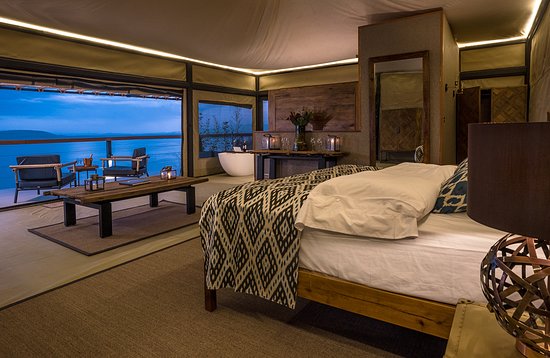
Luxury Tent Accommodations at The Cliff at Lake Nakuru National Park

Rustic Luxury Tents at Elephant Bedroom Camp In Samburu National Reserve
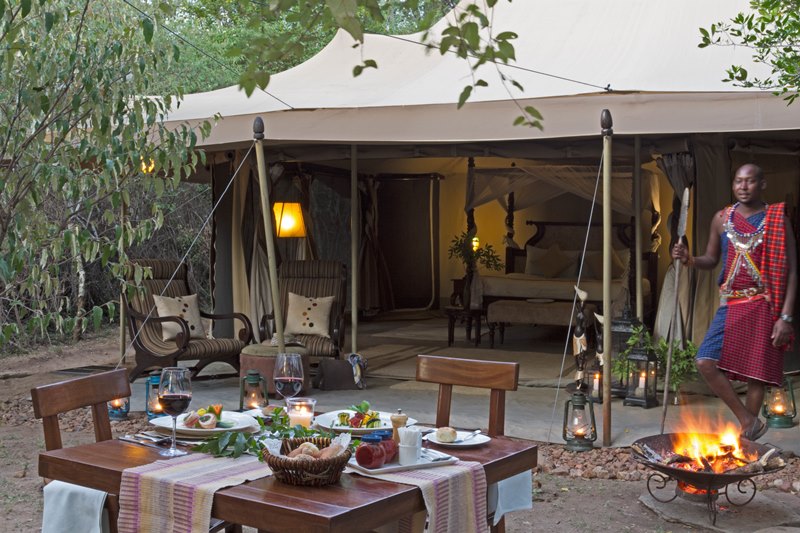
Mara Ngenche Safari Camp in Masai Mara National Reserve
- Kenya – is the origin of safaris and is likely to deliver some of the best African Safaris. The standards of service are high and range from lavish luxury, colonial lodges, contemporary boutique hotels, and Authentic tented camps. Masai Mara is a top pick as it provides an abundance of wildlife, such as the Mara’s Big Five. The Masai Mara National Reserve in Kenya is known for its large population of big cats, hippos, the rare black rhino, and spotted hyenas.
- The Big Five: The phrase The Big Five was given to this group of animals by hunters and referred to the five most difficult animals in Africa to hunt on foot. Finding yourself just a few feet from these majestic creatures is both exhilarating and terrifying, even for the most seasoned safari traveler.
- Elephants – When they are hot, elephants flap their ears to stay cool. Elephants eat up to 18 hours a day. Elephants are the largest land animals in the world.
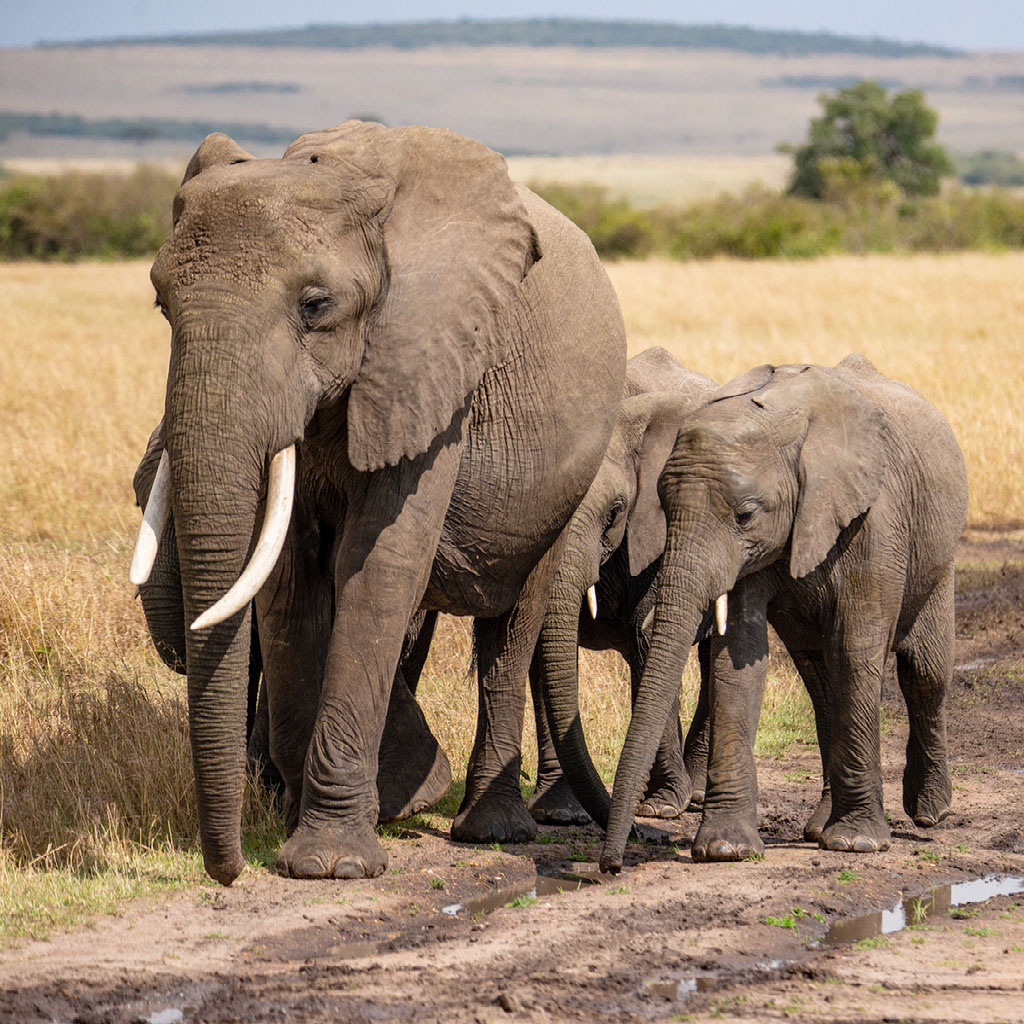
Photo Credit – Giancarlo Bisone
- Rhino – A group of Rhinos is called a “Crash.” Rhinos can run up to 30-40 Miles an hour. They cannot see well but can smell their predators.
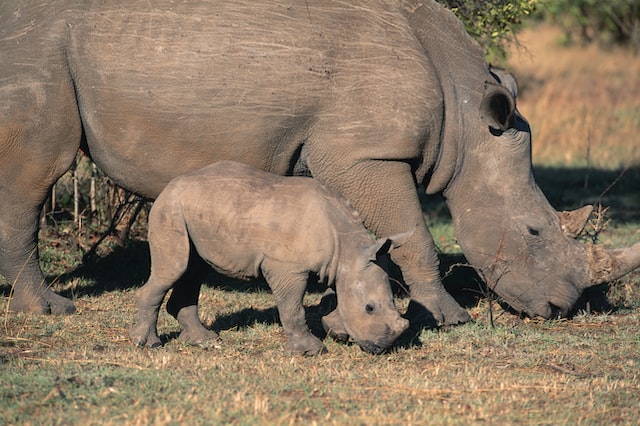
- Buffalo – Buffalo calve are only born in the rainy season. Cape buffalo are known to kill lions. Cape buffalo have exceptional memories.
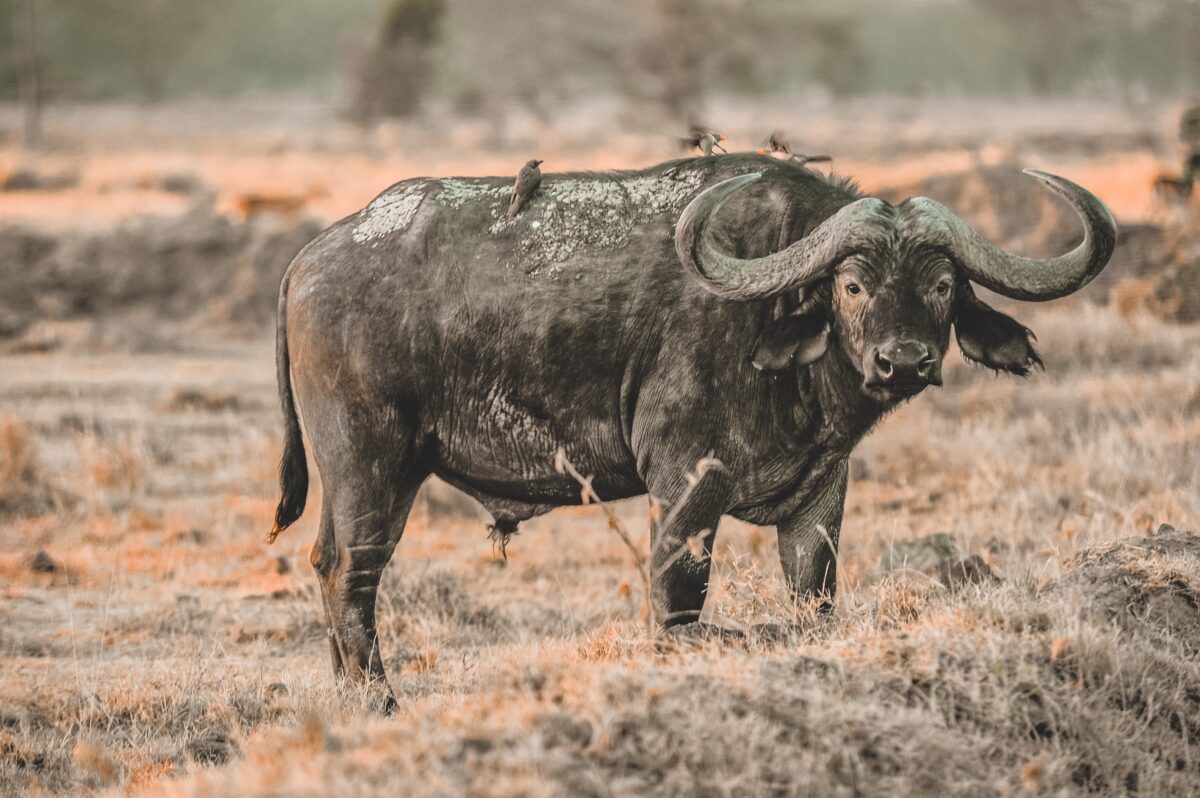
Photo by Harshil Gouda
- Lion – The beautiful thick mane on a male lion also protects their necks during fights with other males. Lions rest for an average of 20 hours per day. When lions are born, they have spots on their fur.
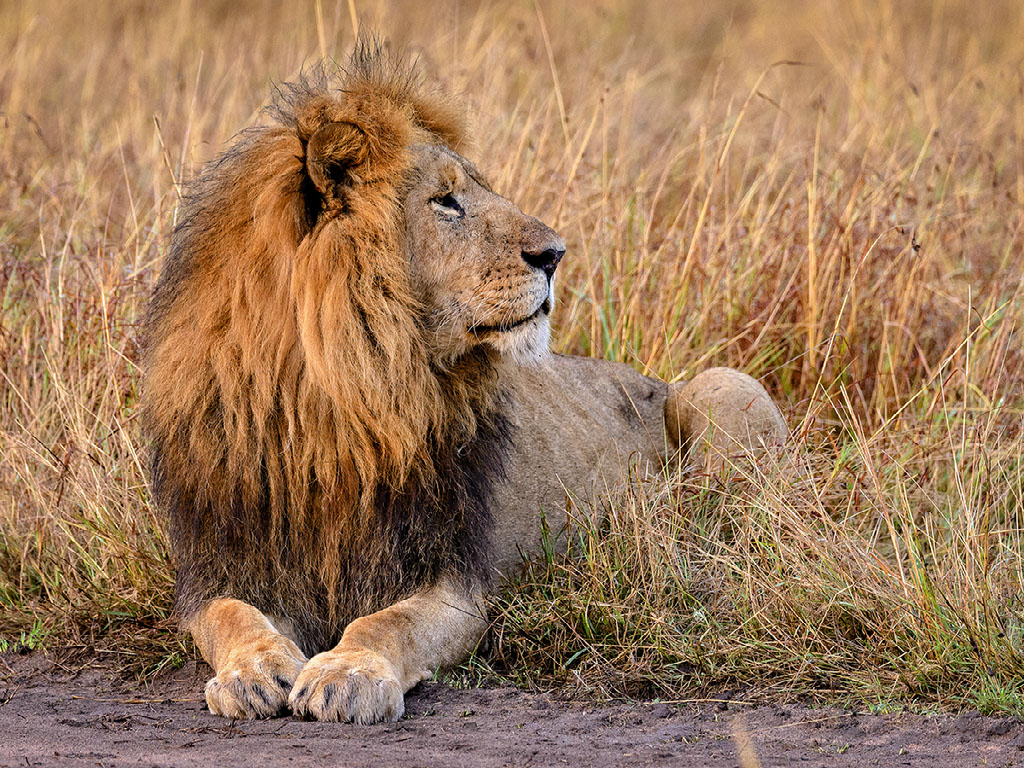
Photo Credit – Giancarlo Bisone
- Leopard – Leopards are very strong swimmers. Leopards are primarily nocturnal, hunting prey at night. The leopard’s spots are called rosettes because they look like roses.
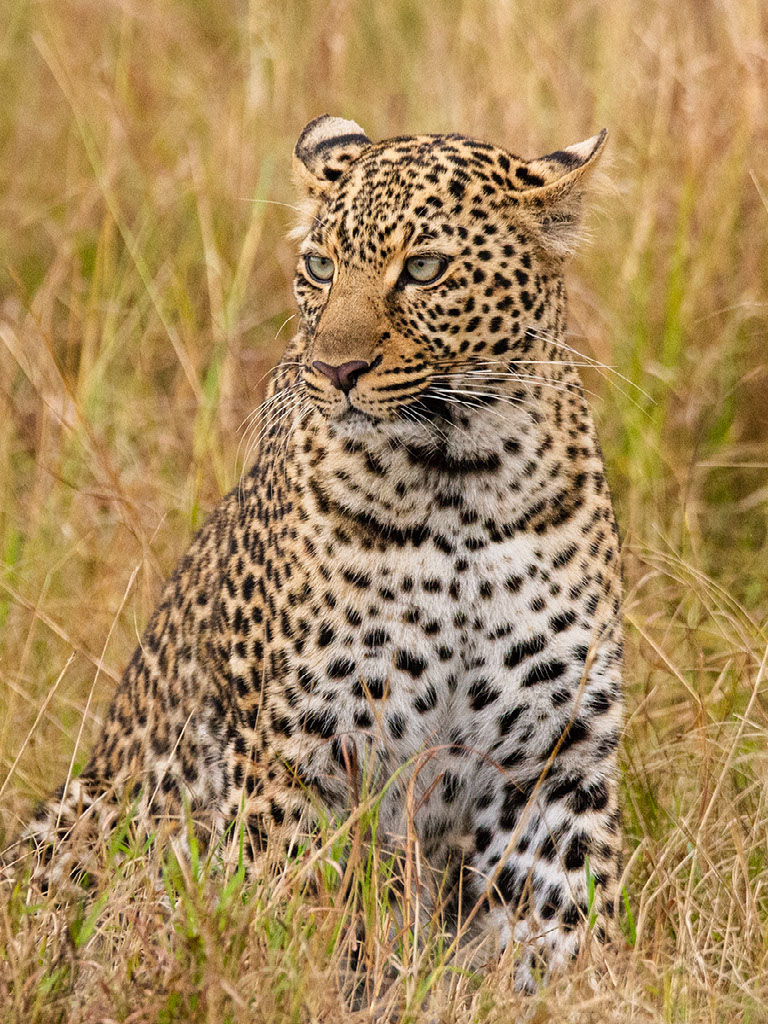
Photo Credit – Giancarlo Bisone
- Elephants – When they are hot, elephants flap their ears to stay cool. Elephants eat up to 18 hours a day. Elephants are the largest land animals in the world.
- Other Wildlife – Big Nine: We can also expect to see Hippos, Cheetah, Wildebeest, Zebras, Giraffes, Impala, and Hyenas. We also chose Kenya as our safari destination because we were planning on flying into Nairobi for the start of our African adventure, and that prompted us to decide a Kenya safari was the safari destination that was best suited for our travel plans.
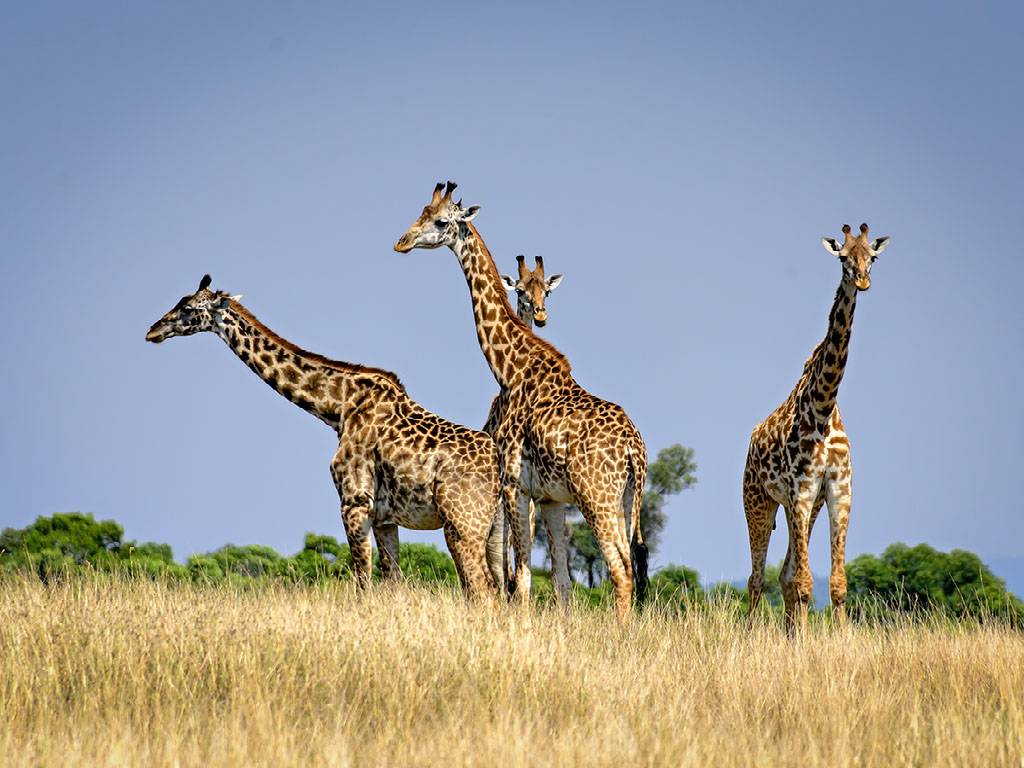
Photo Credit – Giancarlo Bisone
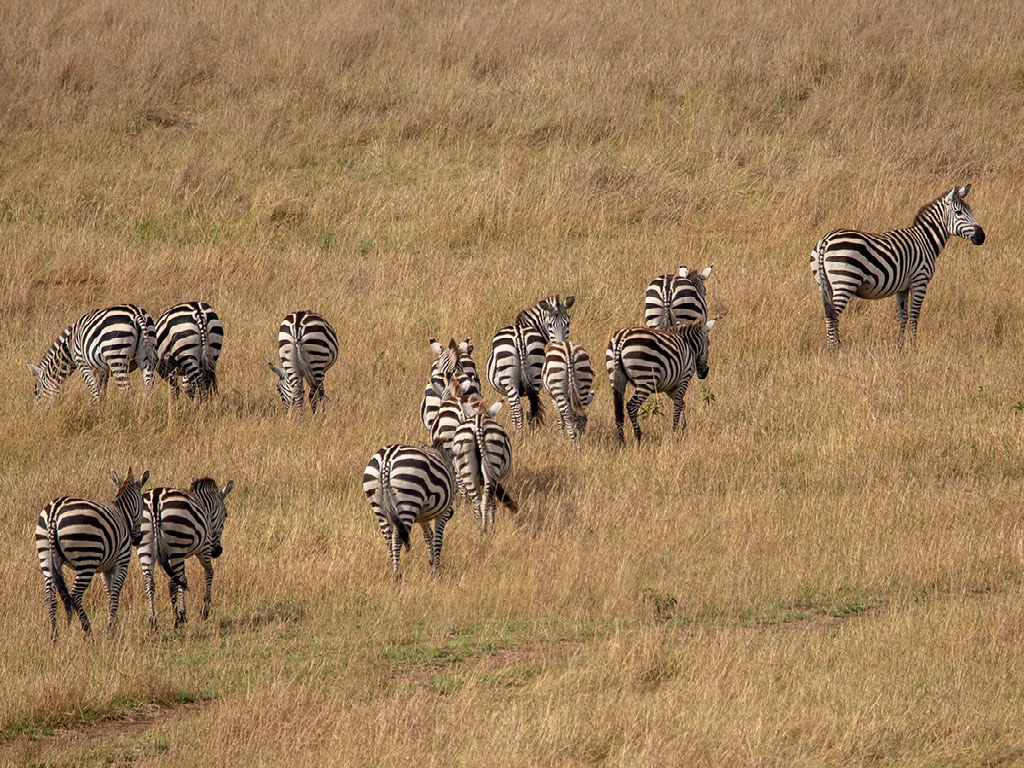
Photo Credit – Giancarlo Bisone
- Best Months to Travel: When did we want to travel, and when are the best months to go on Safari? What is the high season, and what is the low season in Kenya?
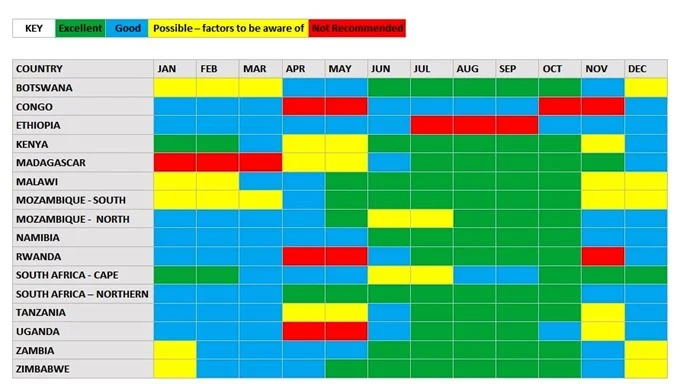
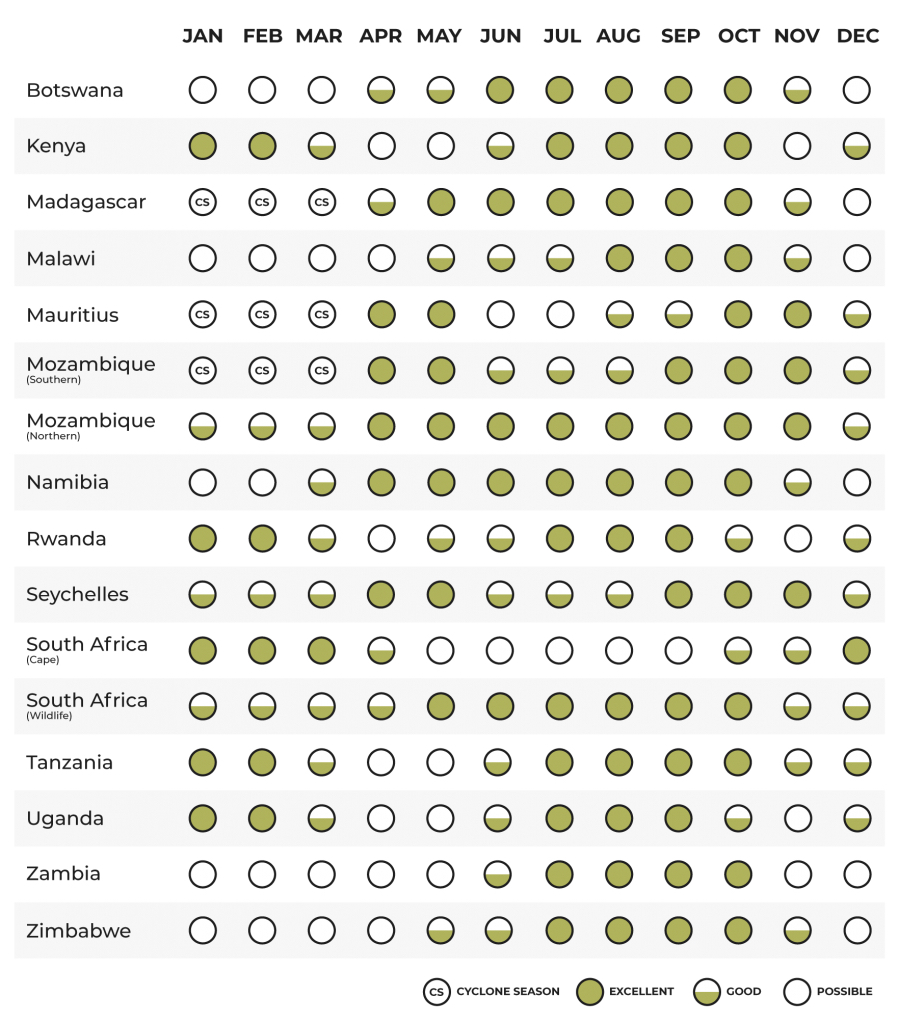
- High or Peak Season is about May to September, when you will find the highest rates and definitely book a year in advance. During this time, the weather is colder and drier.
- Low or Green Season is March to June and October to December. You will find it a bit hotter and more precipitation.
- Overall Best time for a Safari in Kenya is September – October, and Christmas to February. The best weather – is February & September, and the worst weather is in April & May (Some lodges close down in high rainfall areas)
- June to October – Dry Season
- Wildlife is easier to spot because the bush is thin, and animals gather around water
- It’s unlikely to rain; the days are sunny with clear skies
- There are fewer mosquitos
- July to October are the best months to see the wildebeest migrations
- Negative – It gets very busy and crowded in the most popular parks
- November to May – Wet Season
- The scenery is beautiful and green
- It’s the low season, so the rates tend to be lower
- Newborn animals can be seen
- Migratory birds are present from September to April
- Except for March to May, the rains are usually just short showers in the afternoon
Ultimately we wanted to do our personalized safari adventure in late January or early February. We discovered that even though we were still ten months from when we wanted to travel, we found there was limited availability for our flights and booking safari camp accommodations during that time. We were advised that it was still an excellent time to travel for our Safari in March, where the prices were a bit more affordable, and award seats on the flights to Nairobi were also more available. If you are planning for January or February, be sure and start a year in advance!
- How many days do we want to be on safari? We had three weeks (approximately 21 days) for our travel time to work with. We had to consider the to and from travel, the layover travel, the other destinations we wanted to go to, and the time to travel to those destinations. Before you knew it, a week of our allotted travel days had taken up a bit of our planned 3-weeks with the air travel days and stopovers. With that in mind, we chose a 7-day safari excursion, which left us around seven days for our other explorations around Africa.
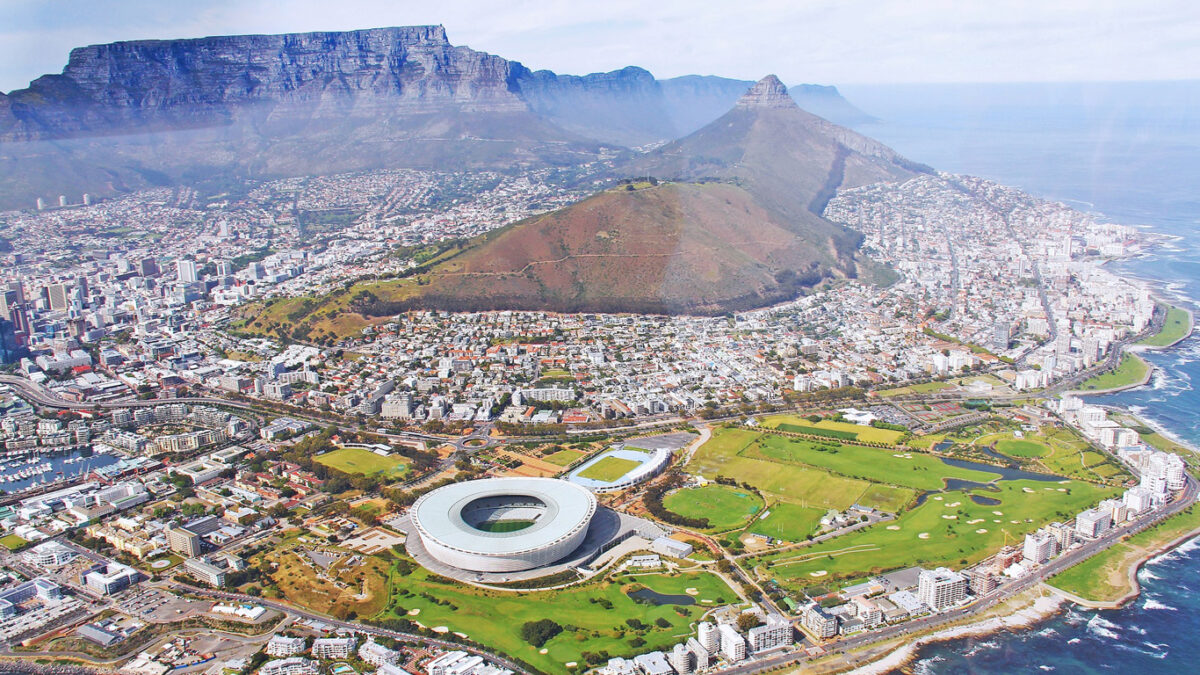
Capetown, South Africa
- Were we planning on wrapping around any pre or post-trips? That’s most definitely a yes! If we were going to be that far away across the pond, we might as well see as much as we can in our three weeks. Victoria Falls, Cape Town, and Winelands were tops on our lists. Being a Foodie and loving wine destinations, Winelands was a place we wanted to explore for several days.
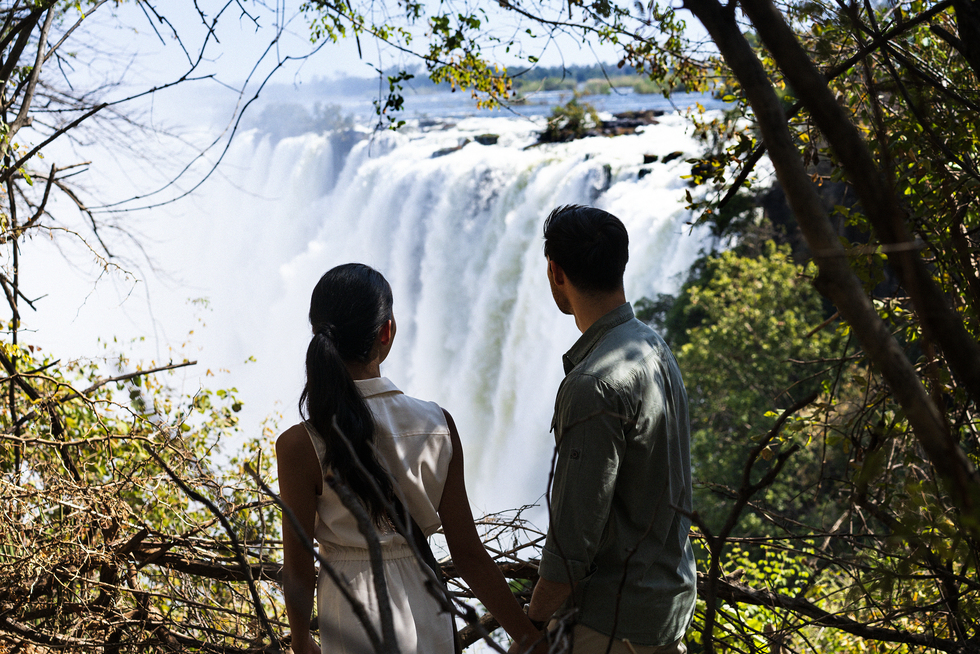
Victoria Falls
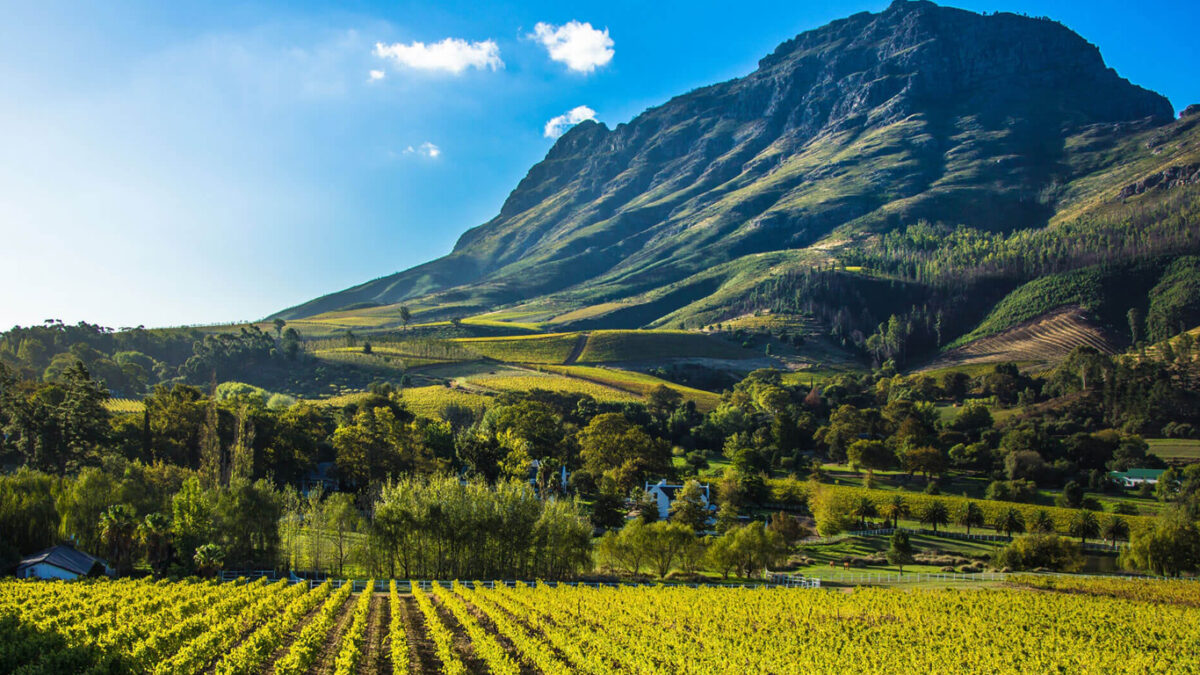
Winelands, South Africa
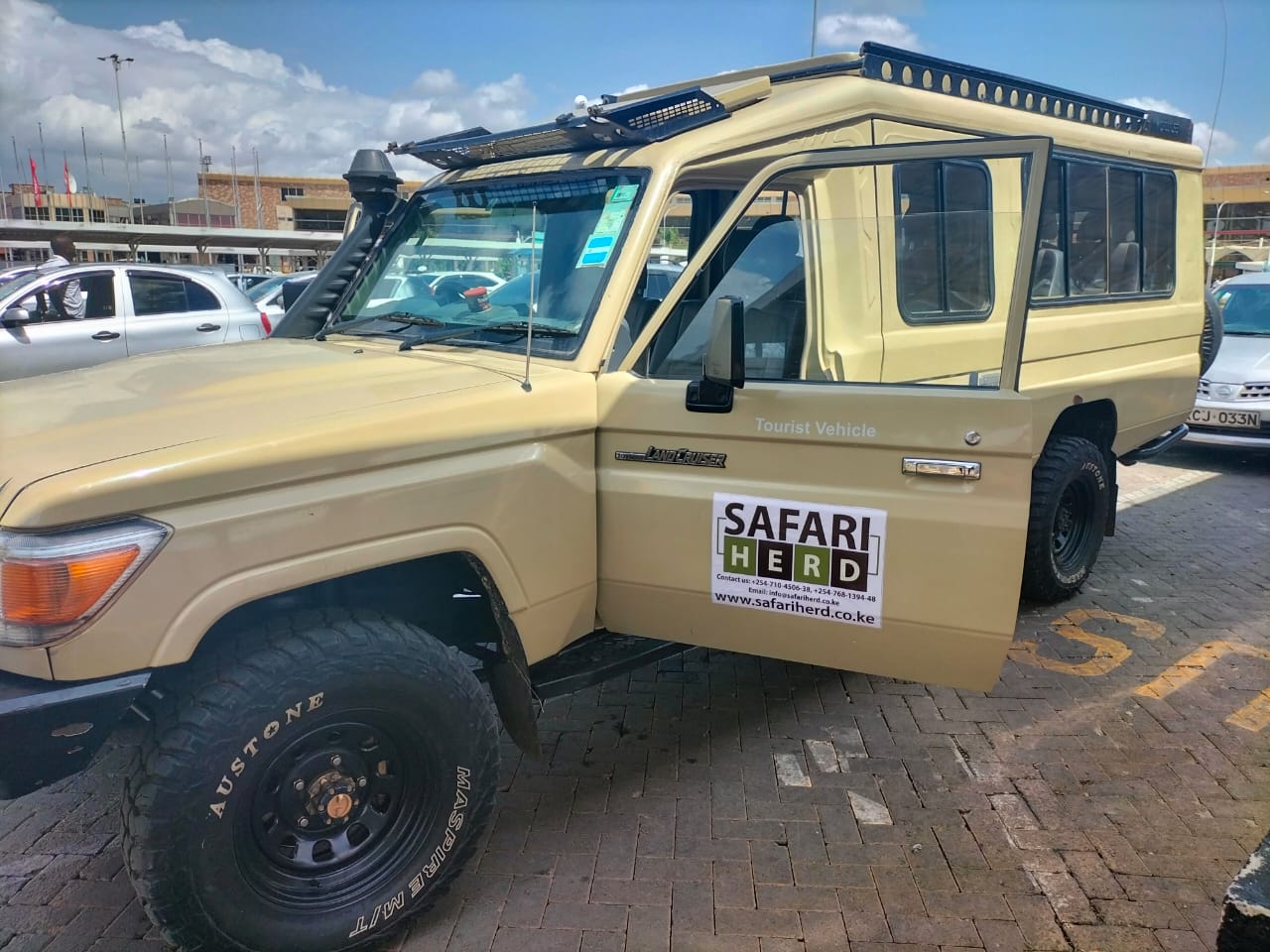
Safari Herd Holidays
Safari Herd Holidays: Another reason we chose Safari Herd as our safari outfitter was their ability to customize the additional locations around the continent of Africa we wanted to visit. It was much easier than working with three different destination travel companies.
Safari Herd founders are native Kenyans who live in Africa along with the rest of the team and are available to consult for whatever need arises when planning to travel to East Africa.
- With so many safari outfitters, how do you choose the one that is right for you? It’s a personal choice for each person searching for a safari outfitter. As a result, what worked out best for us might not be the same choice for you. After narrowing our options, we met with several safari experts via zoom, the internet, email, or in person.
Deciding which operator to go with was arduous, as most of them provided similar experiences and amenities, with some being more pricey and some being more affordable. What impressed us most about our choice, Safari Herd, was our expert’s communications with us, their prompt replies on providing extensive safari particulars, their attention to detail, and their understanding of what we were looking for in creating an experience that fit our budget and our safari expectations.
Here are some suggestions of what to look for when researching Safari Outfitters:

Here is a book that I found very helpful – Fodor’s Travel – The Complete Guide to African Safaris
- Find a list of Safari Companies for the countries you want to see. Get referrals from others that have been on safari. Do research on them based on what they offer.
- Find reviews of each of these companies to get an idea of what kind of experiences to expect from them.
- What kind of amenities do Safari outfitters provide?
- Determine how much you are willing to spend – How much does a Safari cost?
- What is your travel style – luxury, casual, more adventurous, rustic, family style, group travel, or solo travel?
- Decide where you want to go – Africa is a big country!
- Passports, Visa, Proof of Immunizations – you should have all of this in place at least two months prior to your departure.
- Travel Insurance – With the cost of your safari, you will want travel insurance to cover a variety of travel mishaps. Most important is if you have to cancel our trip. Other important reasons – Emergency Medical, Baggage Loss, Baggage Delay, Emergency Transportation, and Travel Delay.
- What to pack and What to wear – Most safari outfitters will provide you a list as your packing list may vary depending on what region in Africa you are going, the time of year, and if you have other destinations you will be adding to your itinerary.
- What kinds of shots and immunizations will I need? What do I do regarding preventing Malaria? Get this information from your Safari Outfitter and check with the CDC – Center for Disease Control.
- With most of my safari package paid in advance, what are my incidental costs, and how much should I tip every day? This is also information you should discuss with your Safari Outfitter.

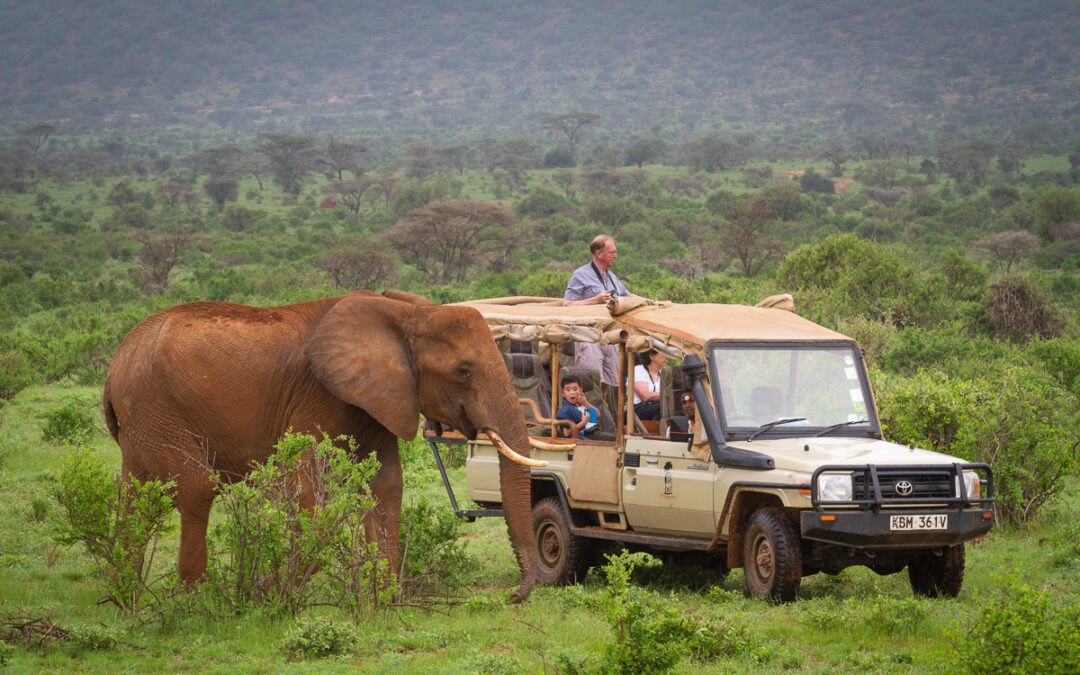
 Greetings and Welcome to NapaFoodGalTravels! My name is Dynie and I am merely a “Wanderous” gal who just loves to travel and happens to live amongst the breathtaking rolling vineyards of the lush Napa Valley. The rest of the time I am in constant search of new sights, new sounds, and new flavors in this amazing world we live in. I welcome you to join me on my journey as I venture to the next spot on my list of Dynie’s Delicious Destinations.
Thanks for stopping by! See you again soon!
Cheers and Happy Travels!
Greetings and Welcome to NapaFoodGalTravels! My name is Dynie and I am merely a “Wanderous” gal who just loves to travel and happens to live amongst the breathtaking rolling vineyards of the lush Napa Valley. The rest of the time I am in constant search of new sights, new sounds, and new flavors in this amazing world we live in. I welcome you to join me on my journey as I venture to the next spot on my list of Dynie’s Delicious Destinations.
Thanks for stopping by! See you again soon!
Cheers and Happy Travels! 

